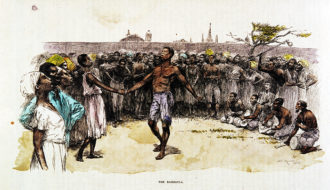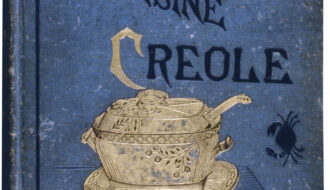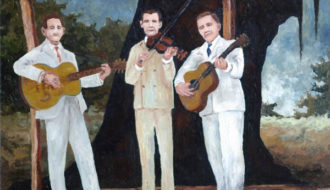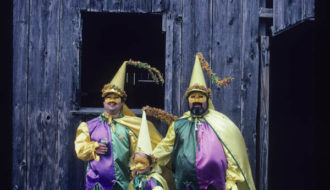History

Confederate Monument Removal
People have long advocated for the removal of monuments to the Confederacy and white supremacy. State and local governments have removed hundreds of monuments in recent years.

People have long advocated for the removal of monuments to the Confederacy and white supremacy. State and local governments have removed hundreds of monuments in recent years.

Congo Square, now Armstrong Park in New Orleans’s Tremé neighborhood, served as a gathering ground for Africans in the early years of the city.

Though born in New York City, artist Conrad Albrizio did much of his work in Louisiana, and his frescos, murals, and paintings ornament Depression-era buildings throughout the region.

Convict leasing was a system of penal labor instituted in the American South after the emancipation of slaves by the Thirteenth Amendment to the United States Constitution in 1865, involving the leasing out of prisoners to private companies.

Beginning in the mid-nineteenth century, several Louisiana cookbooks collected the diverse cooking styles of Creole New Orleanians. Crescent City cookbooks continued to represent Louisiana throughout the next century.

Andrew Jackson was entertained at Cottage Plantation while en route to Natchez after the Battle of New Orleans.

Country music in Louisiana grew out of folk traditions of white rural southerners and includes rockabilly and Cajun music as subgenres.

The courir de Mardi Gras is the rural celebration of Mardi Gras in Louisiana, usually held in Cajun communities

The skills of the Coushatta Tribe’s contemporary basket weavers have elevated this centuries-old utilitarian craft to a highly valued art form showcased in private and museum collections nationwide.

The Coushatta Tribe of Louisiana is the largest of four federally recognized tribal governments in Louisiana.

The Coushatta Tribe of Louisiana is the largest of four federally recognized tribal governments in Louisiana.

Creole cream cheese is a silky, slightly tart cheese used in sweet and savory dishes throughout Louisiana.
One-Year Subscription (4 issues) : $25.00
Two-Year Subscription (8 issues) : $40.00
